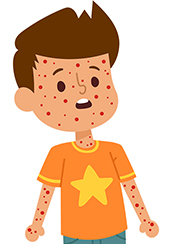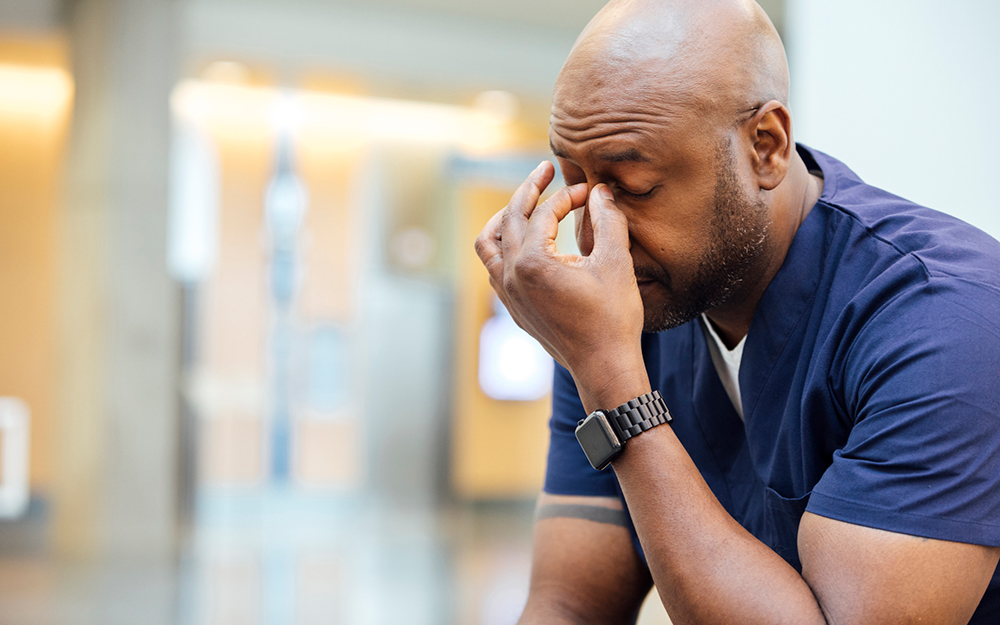When to Keep a Sick Kid Home from School
Date
August 19, 2018

Date
August 19, 2018
Credits
Medical providers featured in this article
In Brief
{{cta-block}}
Your child is sick and you wonder if they should stay or go—to daycare or school, that is.
"Kids should stay home if they have a fever, no matter what the source—whether a viral or bacterial infection—and are generally contagious until they have been without fever for at least 24 hours," says Dr. Karina Eastman, a pediatrician at Cedars-Sinai's Playa Vista location.
Here are a few common illnesses and conditions that may merit a sick day, plus Dr. Eastman's advice on when it's safe to send your kids back to school or day care.

Hand-foot-and-mouth disease
Hand-foot-and-mouth disease is caused by the coxsackievirus and it usually occurs in summer and early fall, affecting children under age 7. Infections may cause fever, runny nose, cough, sore throat, and lack of appetite. Children may also have mouth sores and red, fluid-filled lesions on hands, feet, thighs, and buttocks.
Mouth pain may discourage kids from eating and drinking. "That can result in dehydration," Dr. Eastman says. "I recommend plenty of fluids, and if needed, pain medication. This is also very contagious, spread by touching lesions or transmitted from mouth and nose secretions. Go back to school when lesions have dried up."

Strep throat
Strep throat occurs mostly in children age 3 and older, with fever, cough, and pain when swallowing. Tonsils get red and may have pus. The virus spreads through shared drinks or contact with secretions.
"A rapid strep test in the office can diagnose strep," says Dr. Eastman. "Then we prescribe antibiotics."
Kids can usually return to school 24 hours after starting antibiotics.

Flu
The flu can bring it all: body aches, tiredness, cough, runny nose, sore throat, vomiting, and diarrhea.
"Bring your child to the doctor for testing within 72 hours of first symptoms," Dr. Eastman says. "We can treat positive results with the antiviral medicine Tamiflu to shorten how long they're sick."
The contagious period for the flu begins about 1 day before symptoms start and can last as long as 5-7 days from when symptoms began.

Gastrointestinal illness
Adenoviruses are the troublemakers behind several different illnesses, including unpleasant tummy troubles. They're not bacterial, so antibiotics aren't effective.
"With persistent vomiting and watery diarrhea, even if there's no fever, stay home," Dr. Eastman says. "Your doctor should determine when to return to school."

Lice
These tiny parasites hang out on or near the scalp, commonly on kids ages 3 to 11. Also look for nits, or eggs, stuck to the hair follicle.
"In physical education classes, lice can go from the head to the mat or floor," Dr. Eastman says. "Once off the scalp, they die."
Beware of sharing: Lice are shared by direct contact, and from hair brushes, hair ties, and bedding. They cause itching and sores and can disturb sleep. "But there's no need to stay home," says Dr. Eastman.
Stay up-to-date
Finally, stay current with immunization schedules that you coordinate with your doctor. And whenever you're unsure and concerned about your child's symptoms, reach out to your pediatrician instead of waiting, Dr. Eastman says.





